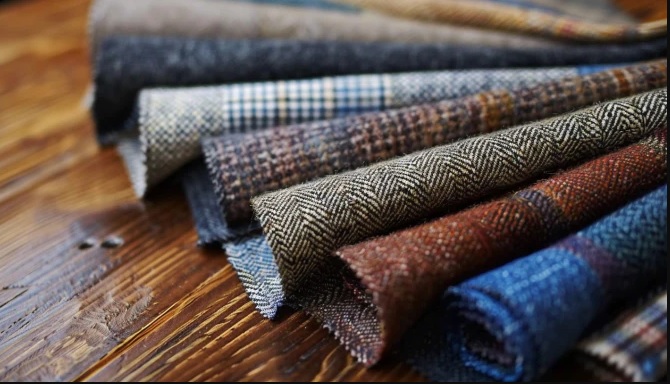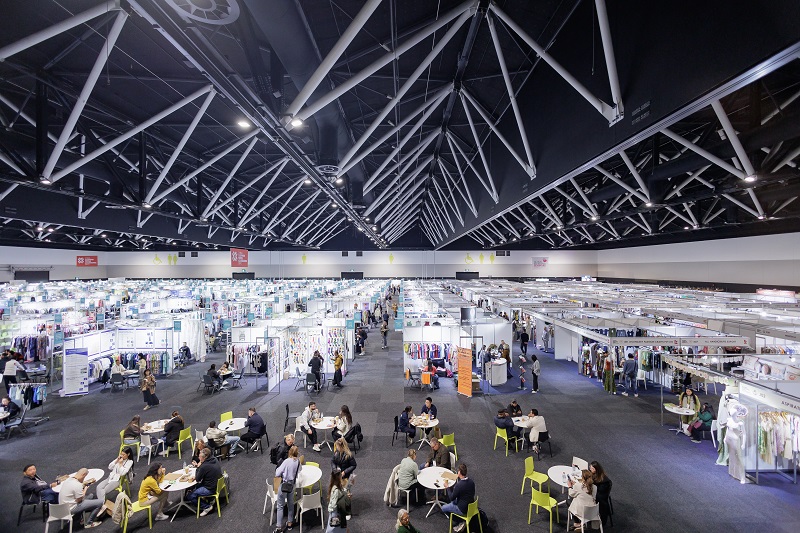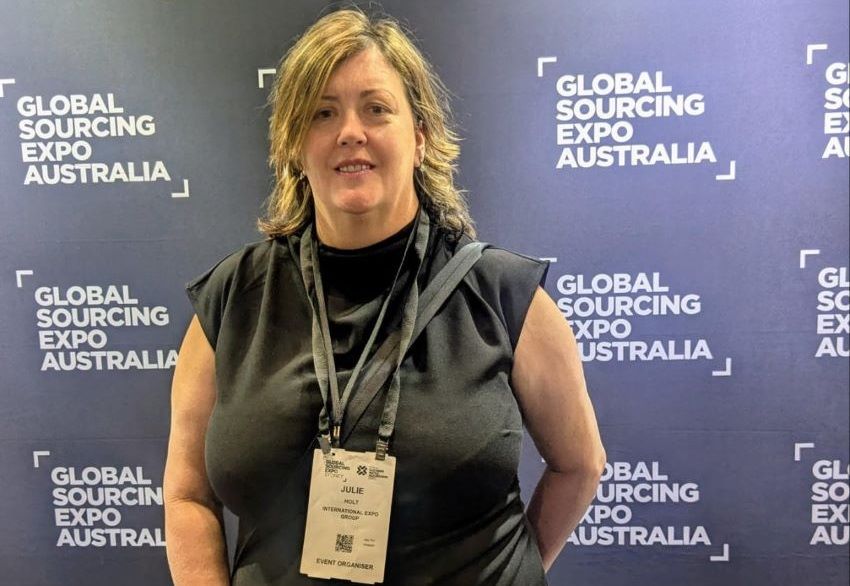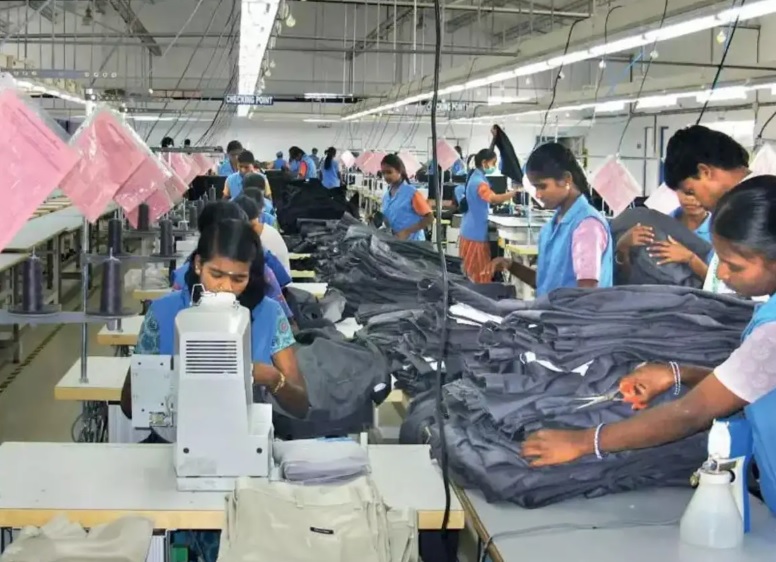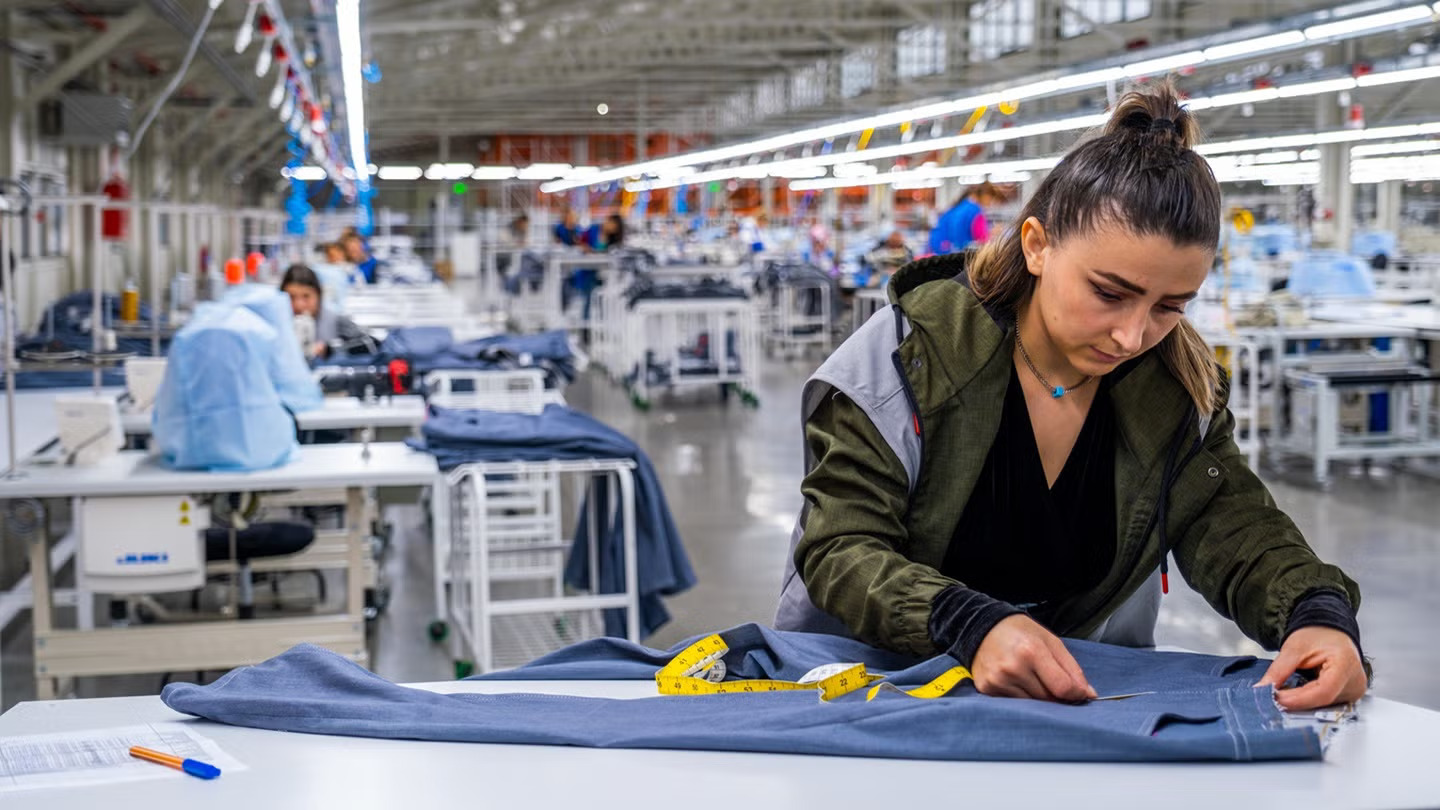FW
The Cotton Company of Zimbabwe (COTTCO) is forecasting a harvest of between 60,000 and 70,000 metric tons for the 2024-25 summer growing season, thanks to favorable rainfall.
Sifelani Jabangwe, Board Chairman, COTTCO, states, stakeholders in the agricultural sector are currently in discussions to determine this year's cotton prices as the marketing season approaches.
Looking forward to a good harvest due, the organization aims to increase its cotton production to 60,000 to 70,000 metric tons this season as against 13,000 metric produced in the 2023-24 season when a El Nino-induced drought impacted production, he adds.
Stewart Muboderi, Chairman, Cotton Producers and Marketers Association, affirms, good rains in this season will help achieve the set target. The association aims to formulate a favorable pricing structure to motivate farmers as it engages on the marketing season's prices with the Agricultural Marketing Authority, he adds.
Most cotton farmers received supplies under the Presidential Inputs Scheme this season. The program provides free support to cotton growers in the form of seeds, base and top-dressing fertilizer, and chemicals.
While the initiative has been beneficial, there have been increasing concerns about side marketing (selling inputs or harvested cotton outside the official channels) and the misuse of supplies. This has led to calls for an audit to ensure the resources are being used properly.
Some experts have suggested moving away from a free input model to a credit-based system, arguing that it would encourage greater accountability and long-term sustainability.
Meanwhile, many local farmers have stopped growing cotton due to low profits and unfair payment practices. In some instances, farmers were reportedly paid in groceries rather than cash, making it difficult for them to cover essential household expenses. Others have abandoned cotton farming because of poor market prices and delays in payment from COTTCO.
With three more facilities achieving the green factory status, the number of garment factories certified by the US Green Building Council’s Leadership in Energy and Environmental Design (LEED) program in Bangladesh has increased to 243, according to the Bangladesh Garment Manufacturers and Exporters Association (BGMEA).
Out of these 243 eco-friendly factories, 101 have earned the platinum rating, 128 have received gold-ratings, 10 have bagged silver rating while four have been certified.
In May, Gazipur-located Tasniah Fabrics’ administrative building was granted with a platinum certificate by the USGBC under the LEED O+M: Existing Building v4 rating system, achieving a score of 82.
Another factory in Gazipur, Tasniah Fabrics also attained a platinum certificate from the USGBC in the same month, scoring 81 under the LEED O+M: Existing Building v4 system.
Dhaka-based Confit Golden Leaf achieved a platinum certificate from the USGBC under the LEED O+M: Existing Building v4.1 rating system with a score of 82.
Notably, 66 of the world's top 100 LEED-certified factories are located in Bangladesh, including nine of the top 10 and 18 of the top 20. This achievement is anticipated to attract new investments and collaborations, further strengthening Bangladesh's position as a sustainable manufacturing hub,
According to industry sources, USGBC plans to certify 550 more Bangladesh factories that have been pursuing LEED certification since 2011.
The USGBC recognizes factories based on several criteria, including transformation performance, energy efficiency, water conservation, and waste management. The highest-performing facilities are awarded the platinum rating, followed by gold and silver. Industry insiders note, while green factories may have higher initial setup costs, these criteria help them significantly reduce operational expenses over time.
Mohiuddin Rubel, Former Director, BGMEA, states, as the world increasingly emphasizes ESG (Environmental, Social, and Governance) performance and sustainability in supply chains, this milestone enhances Bangladesh's global reputation.
Textile machinery orders in Italy fell sharply in the first quarter of 2025, down 29 per cent compared to the same period in 2024, according to ACIMIT, the Association of Italian Textile Machinery Manufacturers.
The orders index dropped to 41.8 points (2021=100), with domestic orders plummeting by 57 per cent and foreign demand slipping 25 per cent. The index for foreign markets stood at 43.3 points, while Italy’s domestic index reached a new low of 30.5 points below the slump seen during the 2020 crisis.
Compared to the previous quarter (October-December 2024), overall orders also declined 15 per cent. The order backlog at the end of March secured just 3.6 months of production.
ACIMIT President Marco Salvade said the industry entered 2025 in a weaker position, citing lingering geopolitical uncertainty and tariffs introduced by the Trump administration as key factors dampening demand. “In the US, orders are frozen as the market awaits the next presidential steps,” he noted.
Despite the downturn, Salvade pointed to signs of recovery in key Asian markets like China, India, and Pakistan. He urged the Italian government to introduce swift, targeted investment incentives to revitalise domestic demand for capital goods.
Kraig Biocraft Laboratories, a global leader in spider silk technology, has received its official business license to begin operations in Cambodia. The move marks a strategic milestone in the company’s plan to expand and diversify production following the strong momentum gained from its 2025 expansion efforts.
The decision to establish a presence in Cambodia aligns with Kraig Labs commitment to scaling its proprietary recombinant spider silk materials. The Southeast Asian country offers favorable climate conditions, developing infrastructure, and an enabling environment to support industrial biotechnology.
“This license represents more than just geographic growth it’s a reflection of the strong foundation we’ve built through our 2025 production expansion,” said Jon Rice, COO of Kraig Labs. “Cambodia offers the right combination of climate, infrastructure, and opportunity to support the next phase of our spider silk production scale up.”
Kraig Labs expects the Cambodian operations to boost overall production capacity while also reducing risks through geographical diversification. The company will continue to invest in both research and infrastructure to enhance the scalability and performance of its eco-friendly biomaterials.
The expansion supports Kraig Labs broader goal of establishing a robust global production network to support commercial roll-out. The company has pioneered advancements in spider silk applications, known for their strength and flexibility, with potential use in defense, textiles, and medical sectors.
With this new foothold in Cambodia, Kraig Labs reinforces its mission to deliver next-generation biomaterials at scale while supporting sustainable and innovative production platforms.
The Aid by Trade Foundation (AbTF) has concluded its €2.8 million CAR-iSMa project, aimed at building climate resilience in African cotton farming. Over three years, more than 100,000 small-scale farmers in Côte d’Ivoire, Mozambique, and Zambia tested soil regeneration methods such as compost, biochar, and bokashi, achieving yield increases of up to 37 per cent on demonstration plots. In Côte d’Ivoire alone, average yields rose from 272 to 1,007 kilograms per hectare in the 2023/2024 season, resulting in an average income boost of €509.
The “Climate Adaptation and Resilience - A Pan-African Learning & Knowledge Exchange Project on Improved Soil Management” promoted healthy soils, biodiversity, and responsible water use. The project also explored carbon farming potential, evaluating carbon credit feasibility and long-term income opportunities for farmers through soil carbon sequestration.
Director Tina Stridde praised farmer engagement, noting the overwhelming participation beyond the 100,000 target. Women emerged as key agents of change, leading composting efforts and spreading sustainable practices. Training materials and knowledge-sharing platforms were developed to extend the project’s impact.
Ivans Trigo Popinsky of Mozambique’s SAN-JFS said many regenerative methods tested are being integrated into daily operations. The project was supported by BMZ and GIZ through the Sub-Saharan Cotton Initiative and implemented with partners including LDC Suisse and local cotton companies.
CAR-iSMa leaves behind a legacy of improved yields, economic empowerment, and practical climate solutions for African cotton farmers.
Source Fashion, Europe’s leading responsible sourcing event, returns from 8th to 10th July 2025 at The Grand Hall, Olympia London, with a refreshed content agenda and influential speaker line-up aimed at helping the industry thrive amid global uncertainty.
Themed ‘Thriving in a Volatile World,’ this season’s programme explores how fashion businesses can adapt and lead during times of disruption. Key sessions will focus on sustainability, sourcing, trade, economics, and resilience, addressing real-world issues like geopolitical instability, rising costs, and supply chain disruption.
Suzanne Ellingham, Event Director at Source Fashion, said, “We’re recognising that for many, just surviving is the priority. From Brexit to global pandemics and commodity volatility, we’ve reached a point where volatility is the new normal. Our programme reflects this reality.”
Headline speakers include Hash Ladha, Former CEO of Jigsaw; Jane Blacklock, Head of ESG at Passenger; Bill McRaith, Executive Adviser at Future-Proof Fashion; and Mark Sumner, Textiles Lead at WRAP.
Opening on 8th July, the panel ‘Beyond Transparency, Building a Culture of Accountability in Fashion’ will examine how brands can shift from surface-level commitments to embedded responsibility. McRaith’s talk ‘Volatility is Nothing New, But Are the Rules Changing?’ will analyse industry disruption and offer data-backed strategies for resilience.
On 9th July, Ladha will share leadership insights in a fireside chat on navigating geopolitical and economic turbulence.
The upcoming edition of the international menswear trade show Shift will debut a new pilot concept Shift Showrooms designed to offer brands a quieter, more private alternative to the main exhibition floor. Located within Muza, the same venue as the main fair, these enclosed spaces allow for scheduled sales meetings and order appointments, providing an atmosphere conducive to meaningful, result-driven conversations.
The fully equipped showrooms come in various sizes and include racks, tables, and chairs. Brands can book them in advance or invite retailers for drop-in meetings later in the day. A standout feature of the initiative is its accessibility: brands do not need to rent a booth on the trade floor to participate. This makes it particularly attractive to international labels looking for a cost-efficient and effective way to connect with buyers.
Shift organizers emphasize the initiative’s simplicity and focus. “Progress doesn’t always have to be radical,” they note. “Sometimes, it’s about creating calm spaces that foster genuine engagement.” The new format is being introduced in a pilot phase, allowing flexibility, experimentation, and feedback from participants. It is designed to accommodate both established names and emerging brands through a modular setup.
By offering an alternative environment tailored to professional, goal-oriented visitors, Shift showrooms aim to enhance the trade show experience. The concept reflects a growing demand for efficiency and personalization in the business of fashion, emphasizing connection over spectacle. The pilot launch could pave the way for a permanent addition to future editions of Shift.

As the global luxury goods market grapples with a prolonged slowdown, an industry once resilient to crises is now undergoing a major transformation. In response, Blossom Premiere Vision (Blossom PV) the exclusive event for luxury and premium pre-collections is adapting to the moment by repositioning its upcoming edition in June, a first since 2020. The show aims to address evolving challenges facing the sector and reinforce the value of pre-collections as a strategic driver for luxury brands navigating uncertainty.
A curated showcase in the heart of Paris
Set for 4 and 5 June at the Carreau du Temple in Paris, Blossom PV will feature around 80 carefully selected exhibitors, including weavers, tanners, and accessory makers. These participants are chosen not only for their creativity and craftsmanship but also for their capacity to meet the industrial and quality standards of luxury houses. The show will preview pre-collections for the Autumn-Winter 2026-2027 season across four key areas: fabrics, leather, accessories, and savoir-faire. With its focused curation, Blossom PV positions itself as a vital hub where fashion decision-makers can source forward-looking materials and collaborate with trusted partners.
Trend forecasting and sensory inspiration take centre stage
Marking a key innovation for this edition, Blossom PV will unveil it’s first-ever Trends Forum. The space will highlight exhibitors’ latest work and offer an exclusive preview of the AW26-27 colour range, centered on the theme of ‘Synesthesia.’ The palette features desaturated hues designed to evoke a sensory, cross-modal experience, and will be officially launched at Premiere Vision Paris in September. Through this new forum, Blossom PV seeks to position itself as a trend incubator for luxury fashion, enabling early creative exploration and market anticipation.
Celebrating craft with bespoke savoir-faire exhibitors
This edition also emphasizes the luxury sector’s reliance on specialist artisans through its dedicated Savoir-Faire zone. These exhibitors do not create standard collections but provide highly customized creations for major fashion houses. Among them is Promesh, known for reinventing architectural design through innovative mesh materials; Authentic Material, which develops patented textile finishing techniques from raw material deposits; Studio 1886, blending traditional know-how with modern production capabilities; and Ricami Laura, an Italian embroidery atelier using vintage treadle machines to craft intricate, hand-made designs. These exhibitors embody the technical and artistic mastery essential to high-end fashion.
Masterclasses to explore sustainability and innovation
To further support industry transformation, Blossom PV will host a new season of exclusive Material Masterclasses on 4 June. Led by Premiere Vision’s fashion and forecasting experts, these workshops accessible by invitation only will cover fabric and leather trends for the AW26-27 season. Carine Montarras, a leather specialist at Premiere Vision, will lead the Leather and Pelts Masterclass, while the Fabrics Masterclass will be conducted by Ariane Bigot, assistant fashion director and fabric expert. These sessions will focus on responsible sourcing, sustainable material innovation, and collaborative development strategies tailored for luxury brands seeking to evolve with integrity and creativity.
With its return in June, Blossom Premiere Vision is reasserting its role as a strategic partner for luxury fashion, offering a platform where innovation, tradition, and sustainability intersect to shape the future of the industry.

Denim mills using Monforts systems dominate eco-focused fabric displays
At the recent Kingpins Amsterdam exhibition held on April 16-17 at the Sugar Factory, Monforts customers took centre stage with their advanced, sustainable denim offerings. Eight of the ten fabrics highlighted in the 2025 Most Sustainable Product (MSP) showcase were developed by companies using Monforts resource-efficient technologies, underlining the machinery manufacturer’s strong influence in driving denim innovation.
These mills - Arvind (India), Diamond Corduroy (Pakistan), Isko and Orta (Turkey), Naveena Denim (Pakistan), Saitex (Vietnam), Soorty (Pakistan), and Textil Santanderina (Spain) utilise equipment such as the Montex stenters, Monfortex shrinking ranges, ECO LINE finishing systems, and Thermex dyeing ranges. “Monforts Montex stenters are the industry standard in denim finishing,” said Hans Wroblowski, Monforts Head of Denim.
He noted that over 900 Monforts Thermex dyeing systems are operational globally, many dedicated to denim production. Innovations such as multifunctional spray coating, thermo-stretch, and skew technologies are helping customers achieve more efficient production and higher energy savings.
Students explore stretch denim innovation
A highlight of Kingpins 2025 was the 'Stretch Yourself' exhibition, a collaborative design project led by the House of Denim Foundation’s Jean School, the world’s only dedicated denim education institute. Thirty students created garments using fabrics from seven Monforts customer mills: Bossa, Calik and Orta (Turkey), Naveena and Soorty (Pakistan), DNM Denim (Egypt), and Advance Denim (China). The project was developed in partnership with The Lycra Company.
“We started with an educational segment on sustainability and innovation and then let the students design freely,” said Mariette Hoitink, co-founder of the House of Denim. The students’ unconventional take on stretch denim highlighted the creative potential of the innovative fabrics provided by the participating mills.
Cellulosic fibres gain ground in denim
While cotton remains the dominant fibre in denim, cellulosics like Lenzing’s Tencel and Ecovero are gaining traction for their soft hand feel and sustainable profile. At Kingpins, Lenzing Hong Kong presented its Application Innovation Collection 25, developed in collaboration with mill partners. This collection featured a variety of sustainable denim styles from Monforts customers including Advance Denim, Naveena, Soorty, TCE Jeans (Vietnam), and US Denim Mills (Pakistan).
“Our team continues to engage with supply chain partners and global brands to drive trend developments,” said Dennis Hui, business development manager at Lenzing Hong Kong. The featured outfits demonstrated varied wash effects tailored to brand expectations and sustainability standards.
Technology enabling greener denim production
Monforts Eco Line range concepts continue to support the production of high-quality, reproducible denim fabrics while enabling gentler processing of sensitive fibres. Their ‘double rubber’ version integrates two compressive shrinkage units and two felt calenders in line, ideal for elastic and bi-elastic materials. The ThermoStretch unit allows combined drying, stretching, and skewing functions, and when combined with the EcoApplicator, ensures minimal chemical usage.
Monforts customers are also adopting the Econtrol and Econtrol TC-A continuous dyeing processes, allowing one-step dyeing and drying of cotton, cotton blends, and cellulosics like Tencel. These methods fix dyestuffs in just 2-3 minutes using controlled steam and air at 120-130°C, drastically improving energy and water efficiency.
“Many of our denim customers are using our existing technologies within integrated finishing mills to enhance their ecological performance,” Wroblowski added. “We continue to collaborate with them on innovative projects that shape the most progressive denim styles seen at Kingpins exhibitions worldwide.”

Bangladesh's RMG export is adapting to India's revocation of trans-shipment services, marked by maiden freighter flight carrying 60 metric tons of RMG for Inditex from Sylhet's Osmani International Airport. This move towards increasing independent air cargo capabilities comes as the industry grapples with the commercial impact of higher transportation costs while recognizing the critical need for lead time control in the fast-paced fashion world.
India's April 8 decision to halt Bangladesh's access to its land, sea, and air logistics network cited congestion and rising costs within its own infrastructure due to the volume of Bangladeshi exports. This abrupt change forced Bangladesh to fast forward its plans for self-reliant air freight options.
Previously, the trans-shipment route through India was a cost-effective, albeit sometimes time-consuming, for many exporters, especially those located closer to the border. Data from the Bangladesh Freight Forwarders Association highlights this reliance: between January 2024 and March 2025, 18 per cent of Bangladesh's garment air cargo, amounting for over 34,900 metric tons valued at $462.34 million, utilized Indian airports, primarily Delhi and Kolkata.
The dual commercial impact
The immediate commercial impact of the trans-shipment ban has been an increase in transportation costs. As Wenwen Zhang of Xeneta pointed out, air freight spot rates from Bangladesh to Europe rose 12 per cent in the week ending April 20, directly linked to the removal of the Indian transit option. This rise poses a challenge to Bangladeshi apparel manufacturers, who operate in a highly competitive global market with tight margins.
However, the increased expenditure must be weighed against the crucial need for lead time control, particularly in the fast-fashion sector. Retail giants like Inditex operate on tight schedules, requiring rapid delivery of goods to meet consumer demand and adapt to evolving trends. Air freight, while more expensive than land or sea trans-shipment, offers faster transit times ensuring that garments reach their destination quicker. In fact, Inditex's utilization of the inaugural Sylhet-Zaragoza freighter flight exemplifies this trade-off. While air freight incurs higher costs compared to previous trans-shipment methods, the ability to directly ship 60 tons of RMG to Spain ensures reduced lead time. This speed is paramount for Inditex to maintain its agile supply chain and respond swiftly to market demands. This decision suggests that for time-sensitive shipments and key markets, the benefits of faster delivery outweigh the increased transportation expenses.
Table: Bangladesh's RMG exports via Indian airports (Jan 2024 - Mar 2025)
|
Metric |
Value |
|
Volume (Metric Tons) |
34,900+ |
|
Value (USD Million) |
462.34 |
|
Percentage of Air Cargo |
~18% |
|
Primary Transit Points |
Delhi, Kolkata |
|
Number of Countries |
36 |
Efforts to mitigate cost impacts
Recognizing the cost implications, the Bangladeshi government anticipates that the new air freight initiative will eventually lead to a reduction in air freight costs to Europe by up to 13 per cent. This projected decrease is crucial for the long-term viability of direct air cargo routes. Incentivizing more airlines to operate from Bangladesh's airports, as urged by the BGMEA, is another strategy to increase competition and potentially drive down freight rates.
The ongoing upgrades to airport infrastructure, such as that in Sylhet and the planned resumption of cargo flights from Chattogram, are essential steps in building a robust and potentially more cost-effective air cargo ecosystem within Bangladesh.
The broader global trade environment adds another layer of complexity to the cost equation. Fluctuations in fuel prices, insurance costs, and potential shifts in demand due to tariff changes can all influence air freight rates. While the potential for increased air freight capacity due to changes in US-China trade dynamics could offer some relief in the long run, the immediate focus for Bangladeshi exporters is managing the current cost increase while capitalizing on the speed and reliability of direct air cargo.
The revocation of India's trans-shipment services has undeniably created a commercial challenge for Bangladesh's apparel exporters with higher transportation costs. However, the proactive development of direct air cargo routes, as demonstrated by the Sylhet initiative and Inditex's participation, highlights a strategic move towards prioritizing lead time control – a critical factor in the fast-fashion industry. The long-term commercial impact will depend on the success of government and industry efforts to optimize air cargo operations, attract more carriers, and potentially negotiate more favorable rates. The balancing act between managing increased expenses and ensuring timely delivery will be a defining factor in the future competitiveness of Bangladesh's apparel exports.

